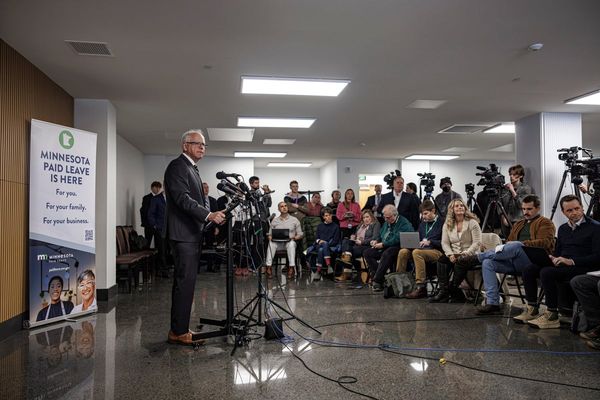
Pakistan has postponed elections in Punjab, the country’s most populated province, in a move that spurns a recent supreme court ruling and is likely to cause more sparks between supporters of former prime minister Imran Khan and the government.
In an eight-page order seen by the Guardian, the Election Commission of Pakistan (ECP) claimed that “it is not possible to hold and organise the elections honestly, justly, fairly, in a peaceful manner”, blaming security threats and financial problems. It said it would be unable to provide a “level playing field” to all political parties as a result.
The move appears to violate a supreme court ruling earlier this month that a new election be held within 90 days of the Punjab assembly being dissolved.
The former prime minister Imran Khan decried the delay. “By postponing Punjab elections till October, the ECP has violated the constitution,” Khan said.
After being ousted from central government in a vote of confidence last year, Khan went on the offensive, holding rallies and demanding a snap election. At one rally he was shot and wounded.
But Pakistan’s prime minister, Shehbaz Sharif, rejected Khan’s demands for a quick election. Khan responded by dissolving the Punjab and Khyber Pakhtunkhwa assemblies, the provincial governments where his party, Pakistan Tehreek-e-Insaf, remained in power.
The supreme court ruled on 1 March that the new elections be held within 90 days. It asked the election commission to propose a poll date and said it could deviate from the 90-day deadline only by the “barest minimum” in case of any practical difficulty.
Salahuddin Ahmed, a lawyer, said the decision to delay the elections by six months represented a violation of the constitution, and the case would go back to the court to be resolved. “To deal with this constitutional crisis, the court has to come up with a full bench, otherwise selecting a few judges to decide on this crucial issue will raise eyebrows,” he said.
Former senator Mustafa Nawaz Khokhar suggested the election commission had been pressured by the government and a political establishment who were terrified of going to the polls at a time when Khan’s popularity is as high as it has recently been.
“The security situation was worse in 2008, when suicide bombings were taking place across the country and we even lost Benazir Bhutto in one of the terror attacks,” Khokhar said. “That did not deter the ECP then from holding the elections, or after that in 2013 when the security situation was equally bad.
“This excuse is not only just lame but undemocratic in spirit and unconstitutional in nature.”
On Wednesday the government had pleaded with the chief justice of Pakistan to “review” the supreme court’s 1 March ruling, saying that forcing an election now when the polls were split would create chaos. The court has not yet responded to the government’s petition but could take it up as soon as Friday.
Michael Kugelman, a director at the South Asia Institute at the Wilson Center, said that as Khan’s primary demand since he was ousted had been elections, he was unlikely to take the decision to postpone them for so long well.
“If the decision to postpone the Punjab election is upheld, and especially if the government ends up delaying national elections too, this will inflame Imran Khan and his supporters and ratchet up their dangerous confrontation with the government even more,” said Kugelman.







